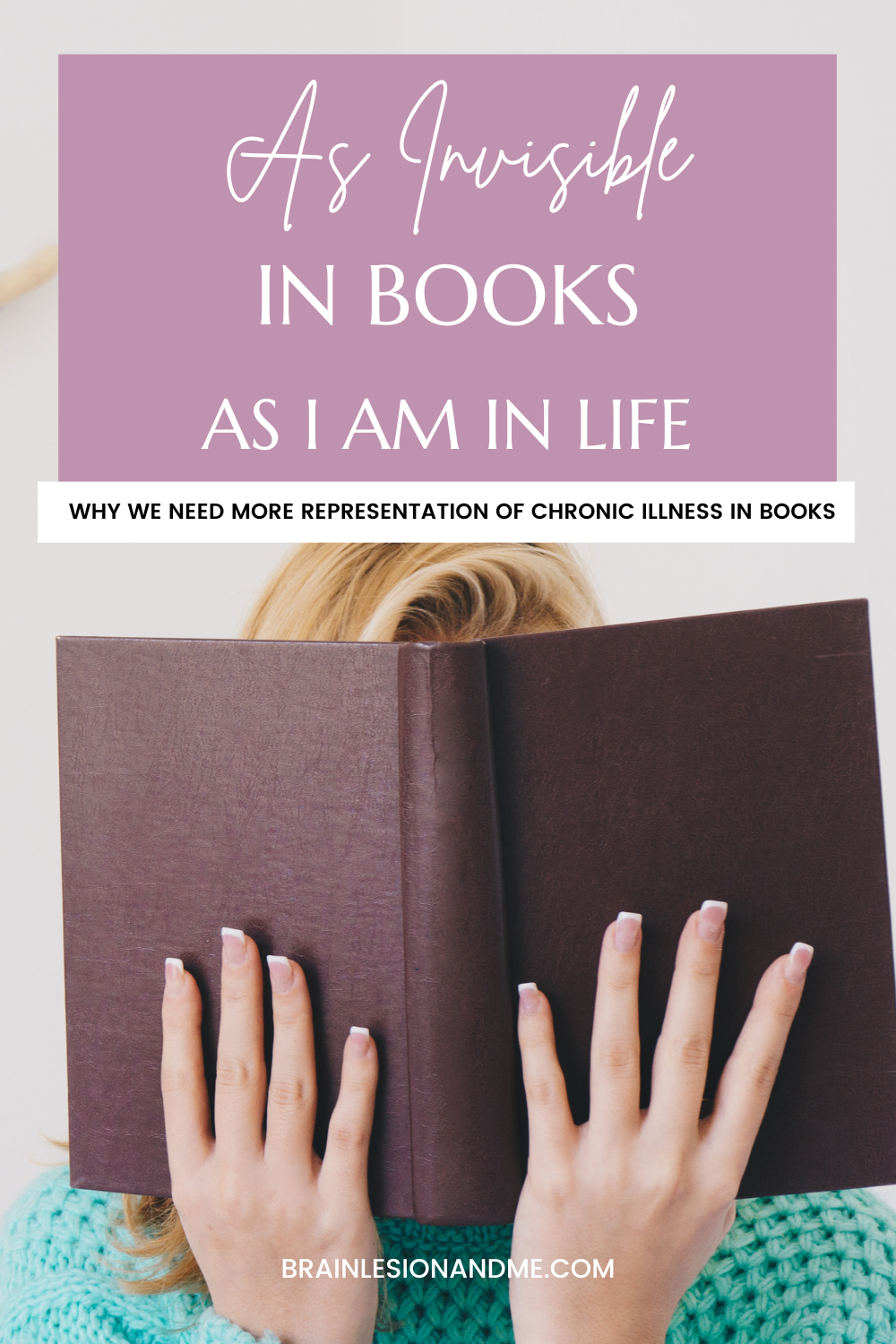
Welcome to the Health Activist Writer’s Month Challenge brought together by WEGO Health – a social network for all health activists. Again, I am participating in the annual Writer’s Month Challenge in which I will be writing about my health activism and health condition based upon prompts given.
Today’s prompt reads as follows:
TV Matchup…Think of a TV show that compares to your life? What is it? Who would you be, who would your friends and family be?
In my opinion, this particular prompt is definitely the hardest. I have spent all of yesterday, thinking of various television programmes and considering how it may compare to my life. However, I really could not think of one. I live with a neurological condition which is both unusual and rare. I live with numerous symptoms, which are not typical of everyday life. Unfortunately, there are not many television dramas that have characters with a neurological condition; there have been on various procedural dramas such as Grey’s Anatomy or House as examples but no long-standing characters from a television show that I can think of. Furthermore, it could also be argued that as many portrayals of chronic illness are on medical shows set within a hospital environment is also in itself not representative of chronic illness as a whole, especially considering neurological conditions such as mine, which often does not require hospitalisations.
But then I thought about chronic illness in general. It is my opinion that chronic illness is not well represented in television dramas generally. Perhaps it is the programmes that I particularly watch, but in my experience the reality of living with a chronic illness is not represented accurately on television drama shows. During the time when illness or injuries that could result in permanent disabilities these storylines are very short-lived; very often the person is diagnosed with the condition, starts treatment such as medication or physiotherapy and the character recovers, and the condition or injury is never mentioned again. Alternatively, the character may even die from the condition.
All of us living with chronic illness, are very much aware that this is not a true representation of what is to live with chronic illness. Television dramas in terms of their portrayal of chronic illness suggests that chronic illness is not severe, or that its symptoms and its effects are short-lived. However, the reality as we know is a lot different. Does this media portrayal of chronic illness reinforce the stigma and disbelief towards those with chronic conditions? Or perhaps, it is to show that those who live with chronic illness can still lead a normal life?

Susan Kennedy a regular on the television soap opera Neighbours who has been battling MS
I remember watching ‘Neighbours‘ several years ago when one of its main characters Susan Kennedy, was exhibiting several neurological symptoms; many of which I experience or have experienced in the past. For example, visual disturbances, dizziness, numbness in the limbs and extreme fatigue. Susan was eventually diagnosed with multiple sclerosis; and in my opinion at the time this particular storyline was monumental in the increasing the public awareness and understanding of multiple sclerosis. I cannot remember the exact length of the storyline in which she battled with multiple sclerosis, but unfortunately in my opinion there has not been an adequate continuation of the storyline. Although she has been seen suffering a recent relapse with her condition, her multiple sclerosis is seldom mentioned or its symptoms never seen affecting her life. It seems that television dramas and particularly soap operas are unable to sustain a long storyline portraying life with chronic illness.

Cherylee Houston as Izzy Armstrong – the first disabled actress on the famous cobbles
The British soap opera Coronation Street also introduced a main character, who also happens to be disabled and exhibiting an invisible chronic condition called Ehlers-Danlos Syndrome (EDS). EDS are a group of inherited connective tissue disorders, caused by a defect in the synthesis of collagen. The collagen in connective tissue helps tissue resist deformation, and generally collagen is an important factor to the physical strength of skin, joints, muscles, ligaments, blood vessels and visceral organs. Abnormal collagen therefore renders these structures more elastic and can lead to easy and excessive bruising, joint hypermobility (looser joints) and weakness of tissue to name but a few. The actress who plays Izzy Armstrong, Cherylee Houston has the condition herself, and therefore the soap was praised for not only hiring their first disabled actress but also for raising awareness of this rare condition. However, other sufferers have raised concerns of not adequately portraying the fatigue and pain that very often accompanies the condition. Critics also state that the public profile of ehlers-danlos syndrome has not successfully raised the awareness of the condition as many people still reporting that they have not heard of the condition. Is this another example for television dramas failing to follow-through in their portrayal of chronic illness?
Really think about the question: In which television series can you think of, in which one of the main characters is living with a chronic illness and it is accurately portrayed and is a continuing storyline within the show?
The answer is probably none. Well, from none of the television dramas that I am familiar with anyhow. Having chronic illness or disability in a soap opera such as Neighbours or Coronation Street can be argued is important in highlighting and raising awareness of a particular illness, however in my opinion it would be more beneficial to feature in weekly dramas as soap operas are an ensemble and features many storylines within each episode; many of which could become overlooked by the audience. Characters are seen in the forefront of the drama for several weeks during their big storylines, but fade back into the background after the conclusion of the storyline to make room for the next big and exciting storyline.
I think that is why I have failed to find a television show that reflects my life. Although my diagnosis does not define me it is however a large part of my life and a television show which compares to my life should therefore also reflect this part of my life. Perhaps a new television show would need to be created to reflect my life with a neurological condition.
I did remember whilst in the middle of writing this prompt about comments others made during the period in which the doctors’ were still trying to find a diagnosis. The doctors were puzzled regarding my symptoms and could not find a cause; as a result my friends would joke that I needed to go on House as he was a diagnostic genius! Perhaps that is the show that I need to compare to my experience with a chronic illness; it certainly would have saved a lot of time trying to get a definitive diagnosis. Maybe this could be a large project for the spoonie community as a whole – to pen a true and accurate portrayal of chronic illness for a television drama. To raise awareness of such conditions and the effects that it has on our lives – perhaps with chronically ill people themselves penning such dramas, the public would gain a better understanding of those with such conditions and perhaps then there would be a more sympathetic approach towards individuals with chronic illness.
So, can you think of any television dramas that has a long-standing character with either a neurological condition, or any other chronic illness? What if your life was a television drama; which television show would compare to your life? As ever would love to hear your suggestions and thoughts! Feel free to add your comments below…




stevedomino
the only one i can think of (and it’s not a show i ever saw – for shame!) is President Bartlet in the West Wing, who had MS – this wiki outlines the way it impacted on his working life – http://westwing.wikia.com/wiki/Multiple_Sclerosis
i wrote something a while back on my blog about the representation of MS in a Douglas Coupland book, “Eleanor Rigby” – http://itsashitbusiness.blogspot.co.uk/2013/10/none-so-blind.html
good blog! thanks!
Pingback: The end is here…. | My Brain Lesion and Me